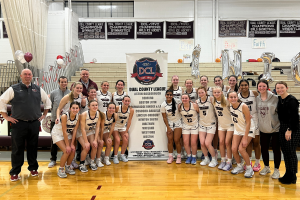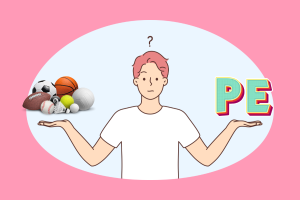Do students experience caffeine addiction?
January 13, 2016
With school, homework, after school jobs and extracurricular activities, some high school students often struggle to find the energy to get through the day. Many students resort to caffeine to keep them awake and energized.
Senior Catherine Grondine began drinking coffee daily during the end of her freshman year and has continued to drink caffeine almost every day since.
Grondine typically drinks coffee three or more times per day, with her first cup starting in the morning when she wakes up. She usually goes to either Dunkin’ Donuts or Starbucks on her way to school and sometimes has another cup when she gets home in the afternoon.
Though she feels that she does not necessarily need caffeine to get through the day, it helps her stay focused and complete some tasks for school.
“I feel as though I probably could go a day without it if I really needed to, but it does help me get my work done during and after school,” said Grondine.
Grondine does not feel any adverse effects of drinking too much caffeine, but usually experiences some symptoms when she does not drink caffeine in the morning.
“In the morning when I wake up and don’t have a cup within the hour or so, I notice headaches pretty much right away,” said Grondine.
Senior Kerry Simpson also feels that caffeine has an impact on her day. She typically drinks one to two cups of coffee per day and occasionally a caffeinated soft drink during dinner.
“I definitely rely on caffeine to get me through a day, especially when I have a lot scheduled for the day,” said Simpson.
Like Grondine, Simpson tends to feel some symptoms when she doesn’t drink caffeine.
“Usually if I don’t drink coffee, I’m extremely tired and sometimes even get headaches,” said Simpson. “If I don’t start the morning with coffee, it probably isn’t going to be a good day.”
She does not tend to experience symptoms of drinking too much caffeine because of her high tolerance. However, if she drinks too much coffee without eating or drinking water, she tends to feel nauseous or jittery.
Though Grondine does not feel that she is addicted to caffeine, she has noticed widespread caffeine use among high school students and sees how a person could become addicted.
Simpson feels that caffeine has an addictive quality, however, she thinks caffeine addiction is not as severe as other addictions such as drugs or alcohol.
“I know I could stop using caffeine on my own without the help of any sort of therapy, which isn’t usually the case for other addictions,” said Simpson. “That being said, I do rely on coffee and don’t have any desire to stop drinking it, so it is kind of a crutch for me.”
The stressors of high school make caffeine a necessary evil for many students and some need caffeine to keep up with their busy schedules.
“We wake up early, work at school all day, then for many students like me we go home and face hours of both school work and part time jobs. This means going to bed late, and waking up early, caffeine ends up being a quick fix to get through the week usually,” said Grondine.







